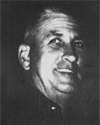United States Penitentiary, Marion
 | |
| Location |
Southern Precinct, Williamson County, near Marion, Illinois |
|---|---|
| Coordinates | 37°39′47″N 88°59′3″W / 37.66306°N 88.98417°W |
| Status | Operational |
| Security class | Medium-security (with minimum-security prison camp) |
| Population | 1,062 (350 in prison camp) |
| Opened | 1963 |
| Managed by | Federal Bureau of Prisons |
| Warden | Maureen Baird |
The United States Penitentiary, Marion (USP Marion) is a medium-security United States federal prison for male inmates in Illinois. It is operated by the Federal Bureau of Prisons, a division of the United States Department of Justice. The facility also has an adjacent satellite prison camp that houses minimum security male offenders.
USP Marion in Southern Illinois is approximately 9 miles (14 km) south of the city of Marion, Illinois, 300 miles (480 km) south of Chicago, and 120 miles (190 km) southeast of St. Louis, Missouri.[1]
History
Construction
USP Marion was built and opened in 1963 to replace the maximum security federal prison on Alcatraz Island in San Francisco, which closed the same year.[2] The facility became the nation's first control unit when violence forced a long-term lockdown in 1983.
Birth of the "control-unit" prison
USP Marion was originally constructed to hold 500 of the most dangerous federal inmates, mostly transfers from Alcatraz. Prison administrators aimed to maintain a safe and orderly environment and rehabilitate the inmates while avoiding the high-profile abuses which occurred at Alcatraz. They implemented a behavior modification program named Control and Rehabilitation Effort (CARE) in 1968. Inmates in the program spent most of their time in solitary confinement or in "group therapy" sessions where they were berated for their deviant behavior and urged to change. In 1973, the first blocks of "control unit" cells were created. Inmates assigned to the control-unit would spend 23 to 24 hours a day in one-man cells which were specifically designed to severely limit or eliminate the inmate's contact with other people inside the prison and the outside world.
Notable incidents
High-profile escape attempts
The first escape from USP Marion occurred in 1975, when five inmates used a homemade electronic device to open the front gates of the prison. One of them had been an electrician and was assigned to work on the lock mechanisms of all of the doors in the main corridors. He also converted a radio into a remote control, with which he opened all of the doors. The five escapees were all eventually captured and returned to prison.
Two escape attempts occurred in 1978 involving the same inmate, Garrett Brock Trapnell. On May 24, 1978, Trapnell's friend, 43-year-old Barbara Ann Oswald, hijacked a St. Louis based charter helicopter and ordered the pilot, Allen Barklage, to fly to USP Marion. Barklage complied, but he wrestled the gun away from Oswald and shot her while he was landing in the prison yard, thwarting the escape. On December 21, 1978, Trapnell's 17-year-old daughter, Robin Oswald, hijacked TWA Flight 541, which was en route from Louisville International Airport to Kansas City International Airport and threatened to detonate dynamite strapped to her body if the pilot did not fly to Williamson County Regional Airport, located only miles from USP Marion. When the pilot landed at the airport in Marion, hundreds of law enforcement officers had responded. Robin Oswald surrendered to FBI negotiators at the Williamson airport without incident about ten hours later. The dynamite was later found to be fake.[3][4]
Murders of Correction Officers Clutts and Hoffmann


The events of October 22, 1983, were the most highly publicized and significant in the history of USP Marion and of the federal prison system as a whole. Correctional officers Clutts and Hoffmann were killed in separate incidents only hours apart, both at the hands of members of the Aryan Brotherhood, a white-supremacist prison gang. Officer Clutts was stabbed to death by Thomas Silverstein.[5][6]
Later that same morning, Officer Hoffmann was stabbed to death by Clayton Fountain, after Hoffmann had pulled Fountain off another officer who was being attacked.[7]
Despite being known as the most secure federal prison in the system, two inmates were able independently to kill their accompanying guards. Relatively lax security procedures allowed a prisoner, while walking down a hall, to turn to the side and approach a particular cell. The prisoner in that cell subsequently unlocked Silverstein's handcuffs with a stolen key and provided him with a knife.[6]
As a result of the murders of Clutts and Hoffmann, USP Marion went into "permanent lockdown" for the next 23 years, which meant that all inmates were locked in their cells for the majority of the day.[8] All of USP Marion was effectively transformed into a "control unit" or supermax, meaning "super-maximum" security, prison. This method of prison construction and operation involves the keeping of inmates in solitary confinement for 22 to 23 hours a day, and does not allow communal dining, exercising, or religious services. These practices were used to keep prisoners under control and prevent prisoners from assaulting other prisoners or prison staff by severely limiting their contact with other people.
Downgraded to medium-security prison
Years later, Norman Carlson, director of the Bureau of Prisons at the time of the Marion incident, said that ordering the permanent lockdown was the only way to deal with "a very small subset of the inmate population who show absolutely no concern for human life." He pointed out that the two inmates who killed the guards were already serving multiple life sentences, so adding another would have had no effect. The "control unit" model at Marion was later the basis for ADX Florence, which opened in 1994 as a specifically-designed supermax prison.[9]
In 2006, USP Marion's designation was changed to a medium security prison and major renovations were made. The renovations increased Marion's inmate population from 383 to 900.[10]
Communication Management Unit
Although the facility no longer operates as a "supermax" facility, USP Marion is now home to one of two "Communication Management Units" in the federal prison system. The Federal Bureau of Prisons created the Communication Management Unit (CMU) in response to criticism that it had not been adequately monitoring the communications of prisoners. "By concentrating resources in this fashion, it will greatly enhance the agency's capabilities for language translation, content analysis and intelligence sharing," according to the Bureau's summary of the CMU.[11][12] The other is at the Federal Correctional Complex, Terre Haute, Indiana.
In a Democracy Now interview on June 25, 2009, animal rights activist Andrew Stepanian talks about being jailed at the CMU. Stepanian is believed to be the first prisoner released from a CMU.[13]
Notable inmates (current and former)
† Inmates who were released from custody prior to 1982 are not listed on the Federal Bureau of Prisons website.
†† The Sentencing Reform Act of 1984 eliminated parole for most federal inmates. However, inmates sentenced for offenses committed prior to 1987 are eligible for parole consideration.[14]


Foreign Terrorists
Foreign citizens who committed or attempted terrorist attacks against United States citizens and interests.
| Inmate Name | Register Number | Status | Details |
|---|---|---|---|
| Mohammed Saleh Clement Hampton-El |
34853-054 34854-054 |
Saleh: serving a 35-year sentence, scheduled for release in 2024; Hampton-el: died in 2014 while serving a 35-year sentence. | Al-Qaeda operatives and followers of Sheikh Omar Abdel Rahman; convicted in 1996 of seditious conspiracy and other charges for their involvement in the foiled NYC landmark bomb plot.[15] |
| Iyman Faris | 46680-083 | Serving a 20-year sentence; scheduled for release in 2020. | Al-Qaeda operative; pleaded guilty in 2003 to terrorism conspiracy for researching potential targets, including the Brooklyn Bridge in New York City, and obtaining equipment to be used in attacks at the behest of Al-Qaeda leader Osama bin Laden.[16] |
| Omar Rezaq | 20267-016 | Serving a life sentence; eligible for release in 2023.†† | Follower of the militant Palestinian leader Abu Nidal and the sole surviving hijacker of EgyptAir Flight 648; 58 people were killed during the 1985 hijacking; Rezaq was convicted of air piracy in 1996.[17] |
| Murad, AbdulAbdul Murad | 37437-054 | Serving a life sentence. | Al-Qaeda operative; convicted in 1996 of conspiracy in connection with planning Project Bojinka, a foiled plot conceived by senior Al-Qaeda member Khalid Sheikh Mohammed to bomb twelve planes over the Pacific Ocean in a 48-hour period.[18][19] |
Domestic Terrorists
American citizens who committed or attempted terrorist attacks against United States citizens and interests.
| Inmate Name | Register Number | Status | Details |
|---|---|---|---|
| Francis Schaeffer Cox | 16179-006 | Serving a 25-year sentence; scheduled for release in 2033. | Leader of the Alaska Peacekeepers Militia; convicted in 2012 of murder conspiracy for plotting the murders of judges and law enforcement agents; two co-defendants were also sentenced to prison.[20][21][22][23] |
| Michael Finton | 17031-026 | Serving a 28-year sentence; scheduled for release in 2034. | Follower of the late militant cleric Anwar Al-Awlaki; pleaded guilty in 2011 to attempted use of a weapon of mass destruction for plotting to destroy a federal building in Illinois with a truck bomb in 2009.[24][25] |
| Carlos Almonte | 61800-050 | Serving a 20-year sentence; scheduled for release in 2027. | Pleaded guilty to conspiracy to murder persons outside the US for attempting to join Al Shabaab, a terrorist group based in Somalia; co-conspirator Mohamed Alessa was sentenced to 22 years.[26][27] |
| Richard Scutari | 34840-080 | Serving a 60-year sentence | Former member of the white supremacist group The Order. Convicted in 1987 of conspiracy, racketeering, and robbery. Sentenced to 60 years in prison. |
Organized crime figures
| Inmate Name | Register Number | Photo | Status | Details |
|---|---|---|---|---|
| Gotti, JohnJohn Gotti† | 18261-053 | |
Died in 2002 while serving a life sentence. | Boss of the Gambino Crime Family in New York City from 1985 to 1992; convicted of murder, murder conspiracy, loansharking, illegal gambling, obstruction of justice, bribery, and tax evasion in 1992. |
| Daddano, Sr., WilliamWilliam Daddano, Sr.† | Unlisted | Died in 1975 while serving a 15-year sentence. | Top loan shark and enforcer for the Chicago Mafia; convicted in 1964 of conspiracy to commit bank robbery.[28] | |
| Bout, ViktorViktor Bout | 91641-054 | |
Serving a 25-year sentence; scheduled for release in 2030. | Russian arms dealer; convicted in 2011 of conspiring to kill Americans and supplying anti-aircraft missiles and other weapons to FARC, a Marxist group on the U.S. State Department list of Foreign Terrorist Organizations.[29] |
Others
| Inmate Name | Register Number | Photo | Status | Details |
|---|---|---|---|---|
| Rose, PetePete Rose | 01832-061 |  |
Released from custody in 1991 after serving five months at the minimum-security camp. | Major League Baseball player and record holder for career hits; convicted of filing false tax returns in 1990.[30] |
| Michael Rudkin | 17133-014 | Serving a 90-year sentence; scheduled for release in 2099. | Former correction officer at FCI Danbury in Connecticut; sentenced to prison in 2008 for having sex with an inmate; convicted in 2010 of trying to hire a hitman to kill the inmate, his ex-wife, his ex-wife's boyfriend and a federal agent while incarcerated at USP Coleman in Florida.[31][32] | |
| Andrew Stepanian | 26399-050 | Released from custody in 2009 after serving 2 years. | Member of Stop Huntingdon Animal Cruelty, which aims to shut down an animal testing laboratory run by Huntingdon Life Sciences; convicted of using the Internet to incite violence against company executives.[33] | |
| Trapnell, Garrett BrockGarrett Brock Trapnell | 72021-158 | Deceased; died of natural causes in 1993 while serving a life sentence. | Convicted in 1973 of air piracy for hijacking TWA Flight 2 and threatening to ram the plane into the terminal of JFK Airport unless he received a ransom.[34][35] |
See also
References
- ↑ Federal Bureau of Prisons. "USP Marion". Bop.gov. Retrieved 2014-03-15.
- ↑ "Control Unit Prisons". University of Massachusetts. Retrieved October 23, 2006.
- ↑ Prisons and the American Conscience ... Google Books. Retrieved July 10, 2011.
- ↑ TIM O'NEIL • [email protected] > 314-340-8132 (June 25, 2011). "A Look Back • Airline hijacking at Lambert in 1972 turns bizarre". Stltoday.com. Retrieved July 10, 2011.
- ↑ "Merle E. Clutts, Fallen Hero". Bop.gov. 1983-10-22. Retrieved 2014-03-15.
- 1 2 "America's Most Dangerous Prisoner?". BBC News. August 10, 2001. Retrieved October 23, 2006.
- ↑ "Robert L. Hoffman, Fallen Hero". Bop.gov. Retrieved 2014-03-15.
- ↑ Richards, Stephen C. (March 2008). "USP Marion: The First Federal Supermax". The Prison Journal. Ncjrs.gov. 8 (1): 6 to 22. Retrieved 2014-03-15.
- ↑ Taylor, Michael (December 28, 1998). "The Last Worst Place: The isolation at Colorado's ADX prison is brutal. So are the inmates". San Francisco Chronicle. Retrieved August 13, 2009.
- ↑ Hunsperger, Kevin. "Marion Prison Tours". WSIL TV. Retrieved March 24, 2008.
- ↑ Washington Post, February 2007 Facility holding terrorism inmates limits communication
- ↑ McGowan, Daniel (July 9, 2009). "Tales from Inside the US". Huffington Post.
- ↑ "Democracy Now interview". Democracynow.org. 2009-06-25. Retrieved 2014-03-15.
- ↑ "History of the Federal Parole System". US Department of Justice. Retrieved 16 March 2013.
- ↑ Fried, Joseph P. (1996-01-18). "Sheik Sentenced To Life In Prison In Bombing Plot - New York Times". Egypt; Holland Tunnel; Middle East; Israel; United States: Nytimes.com. Retrieved 2014-03-15.
- ↑ "#589: 10-28-03 IYMAN FARIS SENTENCED FOR PROVIDING MATERIAL SUPPORT TO AL QAEDA". Justice.gov. 2003-10-28. Retrieved 2012-08-13.
- ↑ Loci, Tony (1996-10-08). "Airline Hijacker Gets Life for Incident That Killed 58". LA Times. Articles.latimes.com. Retrieved 2014-03-15.
- ↑ Wren, Christopher S. (September 6, 1996). "U.S. JURY CONVICTS 3 IN A CONSPIRACY TO BOMB AIRLINERS". The New York Times. Retrieved 17 March 2013.
- ↑ Bonner, Raymond; Weiser, Benjamin (August 11, 2006). "Echoes of Early Design to Use Chemicals to Blow Up Airliners". The New York Times. Retrieved 17 March 2013.
- ↑ Rosen, Yereth (2013-01-09). "Alaska militia leader sentenced to nearly 26 years in prison". Reuters. Retrieved 2014-03-15.
- ↑ "USDOJ: US Attorney's Office - Alaska". Justice.gov. June 2012. Retrieved 2014-03-15.
- ↑ "Fairbanks Residents Sentenced for Conspiracy to Murder Public Officials and Weapons Violations | ATF". Atf.gov. 2013-01-09. Retrieved 2014-03-15.
- ↑ Murphy, Kim (2013-01-08). "Alaska mlitia leader Schaeffer Cox gets 25-year prison term". Los Angeles Times. Articles.latimes.com. Retrieved 2014-03-15.
- ↑ Wills, Christopher (2011-05-10). "Michael Finton Pleads Guilty In Springfield Bomb Plot". Huffingtonpost.com. Retrieved 2014-03-15.
- ↑ Frieden, Terry (2011-05-09). "Man sentenced to 28 years for plotting to bomb federal courthouse". Articles.cnn.com. Retrieved 2014-03-15.
- ↑ "Lawyers for terror suspects from North Bergen and Elmwood Park will ask federal judge to allow bail at hearing today in Newark". NJ.com. Retrieved June 10, 2010.
- ↑ "USDOJ: US Attorney's Office - District of New Jersey". Justice.gov. Retrieved 2014-03-15.
- ↑ "Feature Articles 233". AmericanMafia.com. 1969-08-27. Retrieved 2014-03-15.
- ↑ "Russian arms dealer Viktor Bout handed 25-year federal sentence". CNN. April 6, 2012.
- ↑ Smith, Claire (July 20, 1990). "Rose Sentenced to 5 Months For Filing False Tax Returns". The New York Times.
- ↑ "Jury Finds Former Federal Correctional Officer, Now an Inmate, Guilty of Attempts to Kill Federal Agent and Informant". FBI Jacksonville Division. April 28, 2010. Retrieved 2013-04-18.
- ↑ Hudak, Stephen (July 18, 2010). "Former federal corrections officer gets 90 years in prison for trying to arrange murders behind bars". Orlando Sentinel. Retrieved June 10, 2014.
- ↑ Kocieniewski, David (March 3, 2006). "Six Animal Rights Advocates Are Convicted of Terrorism". The New York Times.
- ↑ http://bulk.resource.org/courts.gov/c/F2/495/495.F2d.22.73-2071.74-1018.522.888.html
- ↑ Killen, Andreas (January 16, 2005). "The First Hijackers". The New York Times.